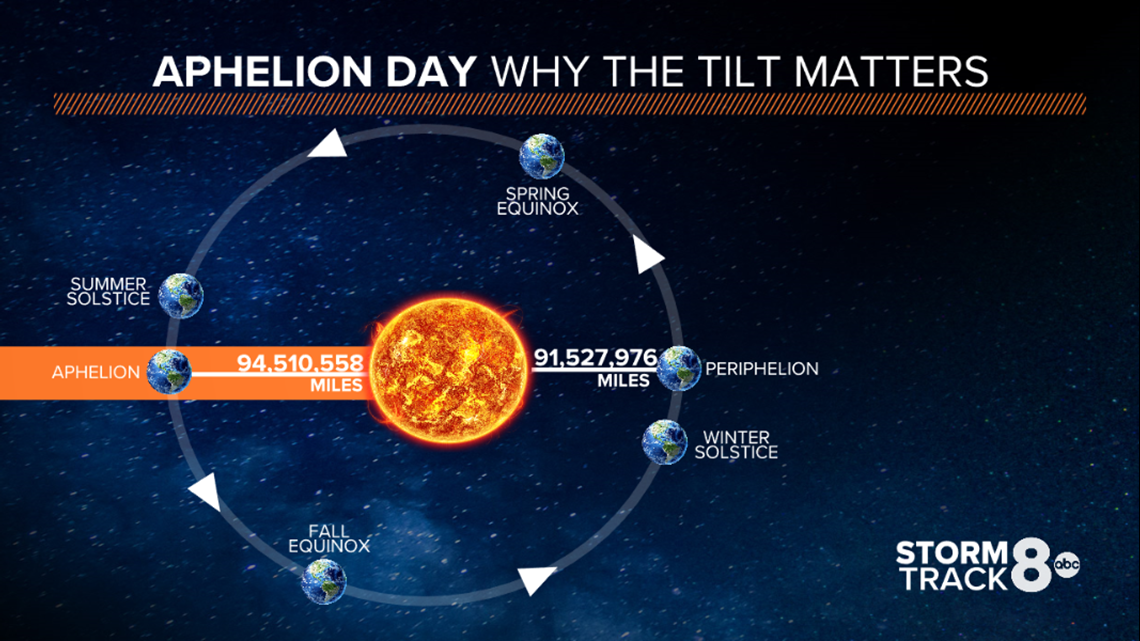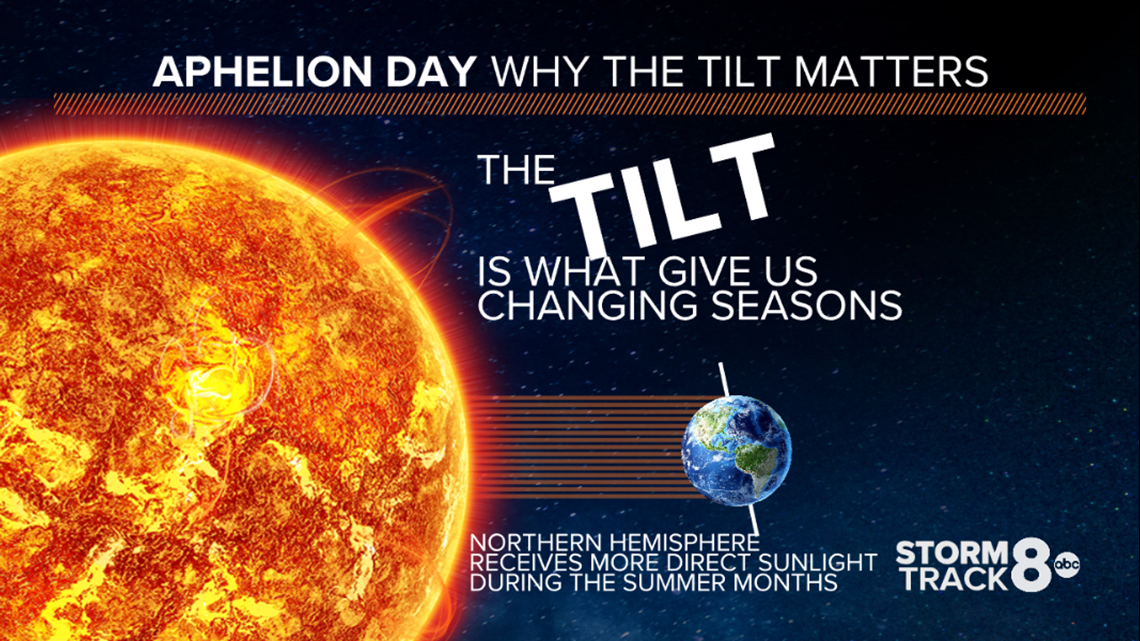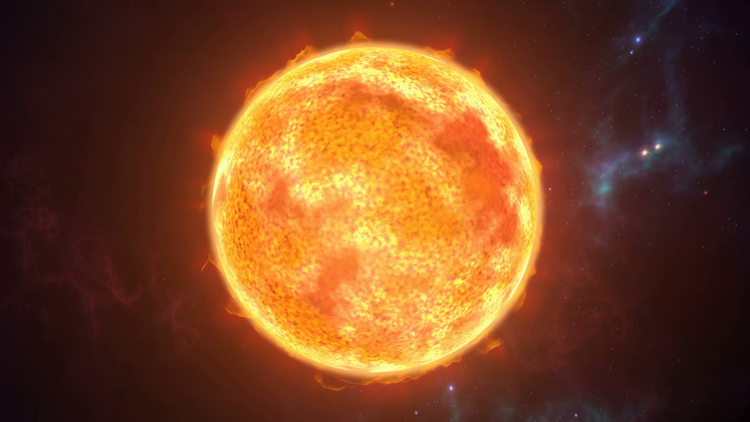MOLINE, Ill. — On July 5, 2021, a phenomenon known as the Aphelion will occur, meaning the earth will be at its farthest point away from the sun for the year. Now, you would think that would mean less energy coming towards earth and cooler temperatures, right? That isn't the case. Distance really isn't important here. It's all about the tilt of the earth's axis that drives our yearly seasons.
As the earth orbits around the sun each year, we too also revolve our weather patterns around different seasons. During the winter months, the earth is actually closest to the sun in terms of distance with a mere 94 million miles separating the two objects, but the majority of the sun's energy falls along and south of the equator because the earth's axis remains tilted. So while locations south of the equator are experiencing the spring and summer season, areas north of the equator are experiencing fall and winter, despite the planets being closer to each other.


During the spring and fall equinoxes, the sun's energy is most focused along the equator and evenly split between the northern and southern hemispheres which is why we have this transitionary season.
Energy from the sun has to travel a fairly far distance to reach the earth's surface. The earth's tilt plays a big role in absorbing that energy in determining where the focus will be. In the image below, the summer season in the northern hemisphere is shown. You can see that the sun's energy has to travel farther to reach the southern hemisphere. Meanwhile, in the northern hemisphere, the sun's energy is more direct.


You can take this a step further and look at the composition of the earth's surface. By comparison, there is far more landmass in the northern hemisphere verses the southern hemisphere. We also know that a landmass heats and cools more quickly compared to a large body of water, like an ocean. So, it comes as no surprise to learn that summer in the northern hemisphere is generally warmer than summer in the southern hemisphere.
-Meteorologist Andrew Stutzke



